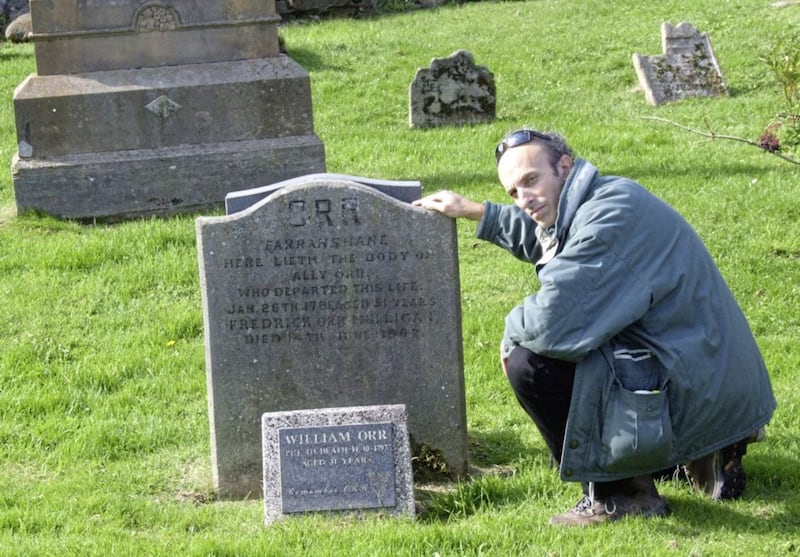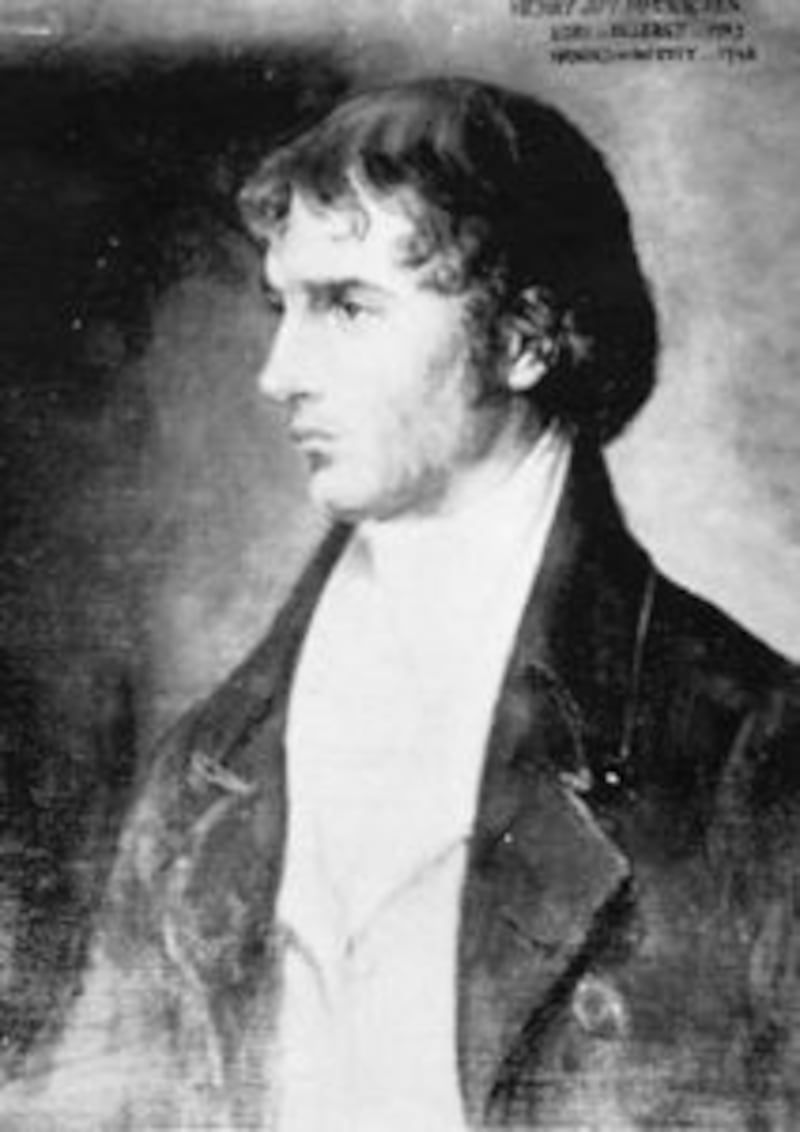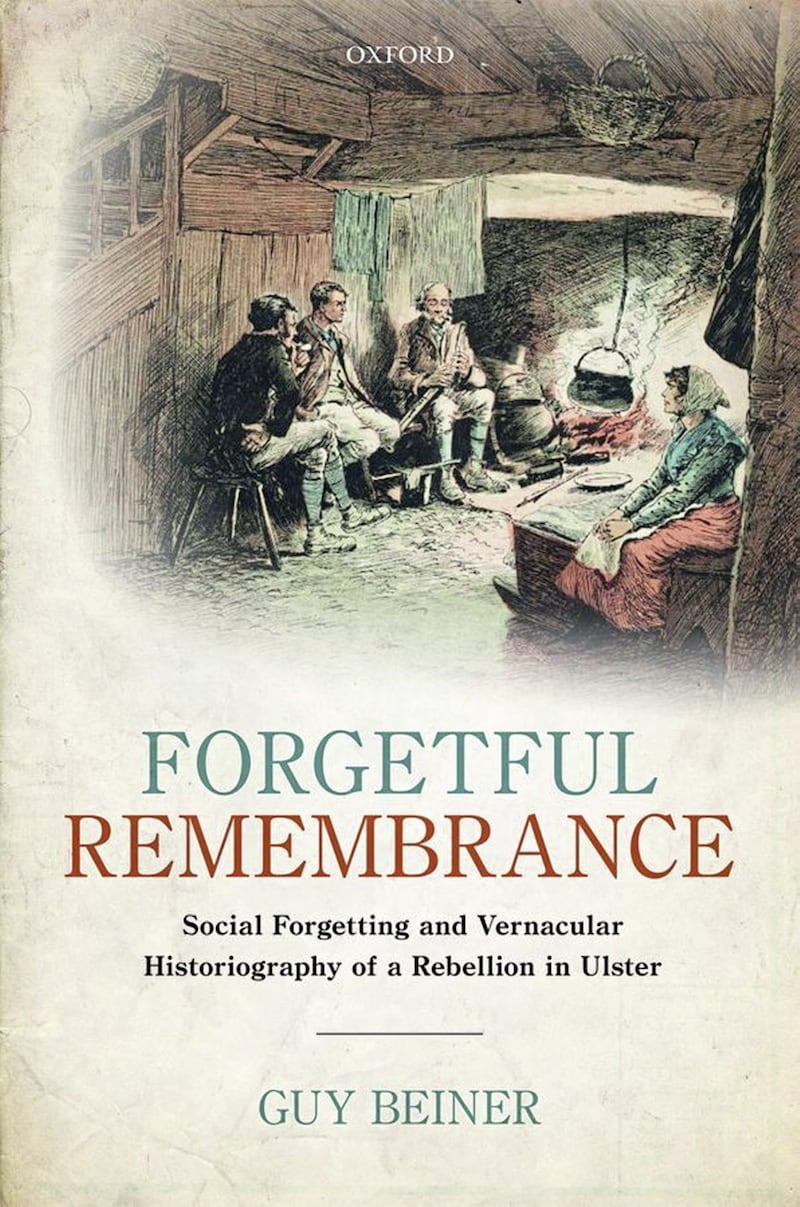FORGETFUL Remembrance by Guy Beiner combines two of its authors' foremost passions: Irish history and the study of memory as it relates to historical events.
The book examines the nature and impact of 'social forgetting' – where communities apparently attempt to obscure, erase or otherwise deliberately leave behind events from their past – in relation to the key role played by Ulster Protestants in the Irish Rebellion of 1798.
Subtitled 'Social Forgetting and Vernacular Historiography of a Rebellion in Ulster', the Israeli history expert's formidably chunky new work examines in forensic detail the key role played by Presbyterians in the failed 1798 United Irish uprising, specifically the inaccurate notion that such inconvenient Protestant/unionist history has long been subject to a collective amnesia on the part of a community which quickly severed all ties to the republicanism of 'the Turn-Out' (as they came to refer to the rebellion) and redefined itself as staunchly loyal to the crown.

By utilising two centuries' worth of source material including manuscripts, newspapers and oral history fieldwork, the book reveals a multitude of subtle rituals of active 1798 remembrance within many Protestant families and localities throughout the north east of the island of Ireland.
It also considers Ulster Protestants' conflicted consideration of Presbyterian United Irish heroes such as Henry Joy McCracken, Betsy Grey and Jemmy Hope, as well as the paradoxical manner in which unionism has clashed with nationalism over the latter's attempts to 'claim' such key figures for its own commemorations, often prompting destructive acts of 'decommemoration'.
"More than a decade of work has gone into this," explains Beiner, a professor of modern history at Ben-Gurion University of the Negev who has a MPhil in Irish Studies from University College Dublin (he learned Irish in order to examine source texts) and whose award-winning previous book Remembering the Year of The French: Irish Folk History and Social Memory also focused on 1798 and its aftermath.
"I don't think there's another study anywhere in the world which has looked with such resolution at the development of memory and forgetting over more than two centuries.
"In memory studies, the book is pushing new boundaries: 'Social forgetting', as I define it now, is really another form of social remembrance: the book is more or less 'looking under the hood' of what's called collective amnesia and finding that there's a lot of things actually being remembered."

He adds: "I don't think there's a page where I'm not presenting something new – even if it's known, it's presented in a different way."
Such 'forgetful remembrance' is illustrated by the post-rebellion oral histories collected throughout north east Ulster by the likes of Samuel McSkimin, RR Madden, Classon Porter and Francis J Bigger.
'Oversimplification of history'
These accounts are also integral to Beiner's proposition that a reliance on pure fact can lead to a gross oversimplification of historical events.
In other words – specifically, those of late great Irish historian ATQ Stewart – "what people think happened in 1798 is, in one way, just as important for Irish history as what did happen".
"One of the great successes here was the rich amount of sources I found in Northern Ireland," Beiner enthuses. "In fact, I discovered so much material that I had to deal with the puzzle of 'can I still use the word 'forgetting'? in the title' – because it was clear that there was actually so much remembering going on!"
Forgetful Remembrance also illustrates how unionist attitudes to 1798 have evolved over time, with The Irish News proving to be of particular help in this regard thanks to Dr Eamon Phoenix's news archive-based column, On This Day.
"I used a lot of newspaper material, almost 2,500 articles – including 220 or so by The Irish News from different periods, from the 19th century up until the present day," Beiner explains.
"Dr Eamon Phoenix has done remarkable work. I looked at every single piece where he mentioned 1798 – and there were a lot.
"He's been bringing to attention forgotten local historians from the 1930s and 40s who did incredible work. I was familiar with their material because I had seen their manuscripts and sources, but otherwise they are not in the public realm – so that was great to see."

Weighing in at well over 600 extensively footnoted pages and packed with in-depth explorations of the latest theories and concepts in memory studies – including vernacular historiography, in which Beiner posits that oral and written historical accounts should be given parity with official history – Forgetful Remembrance is an extremely thorough tome which the author hopes will find a wide readership in spite of its wilful density.
"One of the biggest challenges for me with this book was to pin down the readership," admits Beiner, who has also been a Government of Ireland Fellow at Trinity College Dublin and a Marie Cure Fellow at the University of Oxford.
"I wanted it to be very broad – but how do you write a book for a local historian from Northern Ireland who is really familiar with the terrain and also for a more general reader?
"That was a big puzzle and I did my best, but as you have seen, it's a demanding book which requires a lot of attention and concentration."
Happily, it seems that the book is already proving to be a hit on the local history scene.
"I've had a lot of emails from your local historians who are really ploughing through the footnotes and using it as a tool," Beiner reports.
Memory study
When asked about how the concepts of memory study dealt with in the book might be applied to the troubled history of his homeland, the Israeli academic explains that they certainly could – just not by him.
"Everything there can certainly be applied to Israel and to Palestine," says Beiner. "For example, the chapters which deal with proscribing memory and banning public commemorations – that in many ways is the story of Palestinian remembrances which are taboo to the ethos of the Israeli state.
"I think and read a lot about Israel, but for me it's important not to write about my own area. When you write about your home area, you are emotionally attached. Everything you say will be judged through the prism of politics.
"I have a huge advantage coming to Ireland because I'm not part of your 'game'. I feel equally comfortable addressing a nationalist or a unionist or a mixed audience because I'm not emotionally invested in either 'side'."
Beiner adds: "I think this book should be of just as much interest to Catholics, nationalists and republicans as it will be to unionists, Protestants and loyalists."
:: Guy Beiner will launch Forgetful Remembrance at Queen's University Belfast on Thursday January 24, before leading the workshop History & Memory: Through The Looking Glass on Friday January 25 at 10am. See QUB.ac.uk/schools/IrishStudiesGateway for further details. Forgetful Remembrance is available now, published by Oxford University Press. Buy online via Global.oup.com


